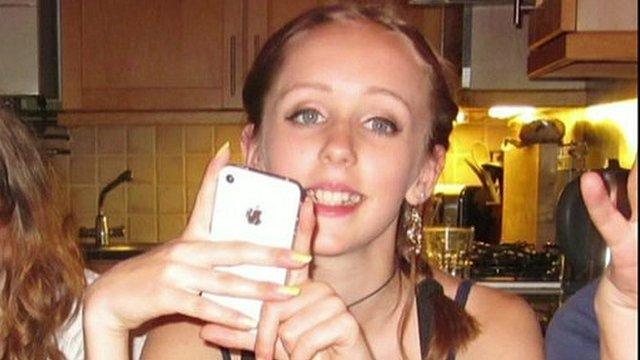Alice Gross: Suspect Arnis Zalkalns 'made weapons to murder wife'
- Published
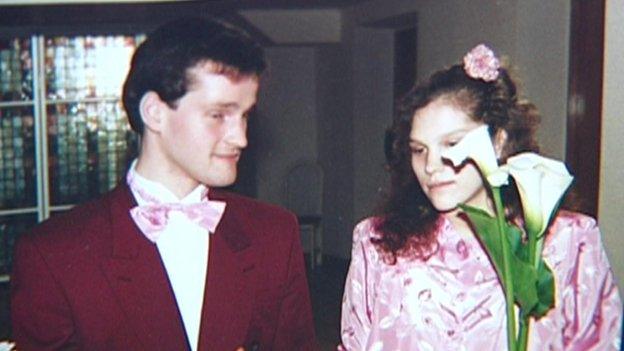
Arnis Zalkalns bludgeoned and stabbed his wife to death in 1998
The prime suspect in the investigation to find Alice Gross murdered his wife with homemade weapons, court documents have revealed.
Arnis Zalkalns, 41, from Latvia confessed to taking his wife Rudite, to a forest and attacking her with a steel pole and eight-inch knife, in 1998.
Alice, 14, from Hanwell, west London, was last seen on 28 August next to the Grand Union Canal.
The Met is to stage a reconstruction of her disappearance on Thursday.
It is hoped the reconstruction, four weeks after the schoolgirl disappeared, will prompt anyone with information to contact police.
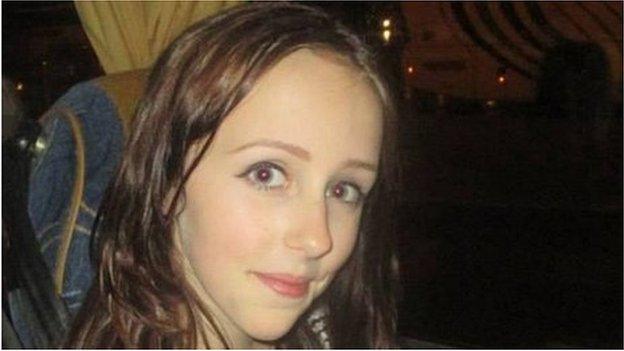
Alice Gross was last seen near the Grand Union Canal on 28 August
The Latvian court documents, which BBC correspondent Damien McGuinness has seen, revealed a psychologist described Mr Zalkalns as mentally stable and said he knew exactly what he was doing when he murdered his wife and buried her in a shallow grave.
The Latvian national served seven years in jail for the killing, before moving to the UK in 2007.
The mother-in-law of the main suspect in the disappearance of Alice Gross has told the BBC she hopes Arnis Zalkalns will be caught soon
The inquiry into Alice's disappearance focused on Mr Zalkalns after he went missing on 3 September without a passport, from Ealing, west London.
The general labourer, who works at a building site in Isleworth, was seen riding a mountain bike along the canal path 15 minutes after Alice walked the same way on the day she disappeared.
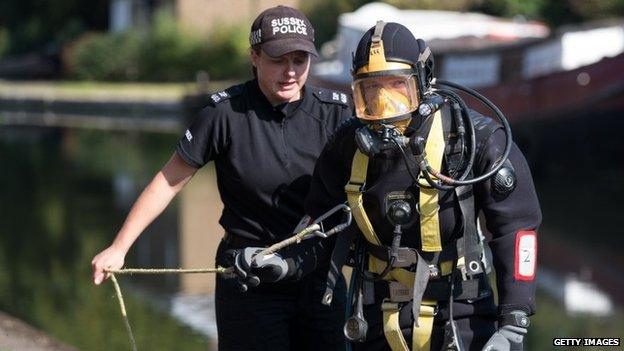
The hunt for Alice Gross has included land and river searches along stretches of the River Brent
During his 1998 confession Mr Zalkalns said his wife had told him she was a lesbian and started going out a lot.
He said one night when she did not return home, he made a metal pole and knife which he used to hit and stab her with.
Mr Zalkalns said after killing her he smoked a cigarette and went home, sleeping well for two nights, before reporting her missing to police.
When her decomposed body was discovered he confessed to having murdered her, but claimed it was her fault because she had allegedly molested his daughter.
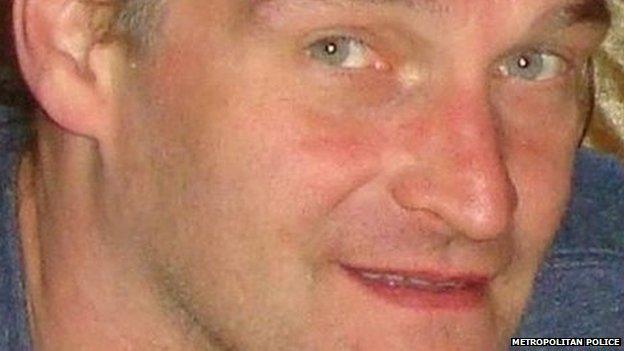
Arnis Zalkalns smoked a cigarette and slept well for two nights before confessing to the murder of his wife
The Latvian court documents also contained details of medical notes from when Mrs Zalkalns was shot in the stomach in 1995.
No-one was convicted, but Mr Zalkalns' former mother-in-law, Viktorija Rudite, blamed him. He claimed his wife had tried to kill herself and she said she was shot by passing teenagers.
The Met believes Mr Zalkalns is just as likely to be in the UK as abroad and police in Latvia confirmed he had not entered the country through any airport, but said it was possible he could have got in undetected if he travelled by car or coach.
Scotland Yard is continuing to search a stretch of the River Brent and its banks near Ealing Hospital as part of its investigation.
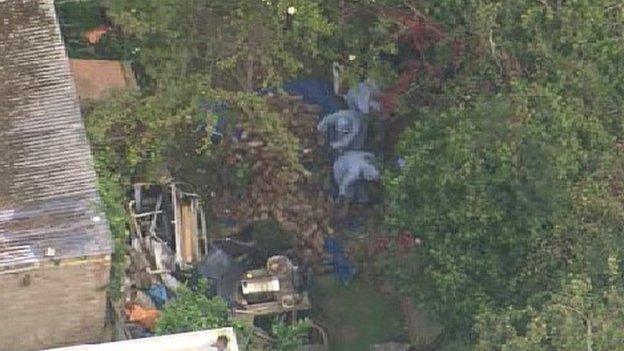
Forensics officers have also been searching the garden of the home of Arnis Zalkalns in Ealing
On Monday, a knife discovered in the water was sent for forensic analysis, but Scotland Yard said "it is too early to say if it's connected".
The hunt for Alice is the largest Metropolitan Police search operation since the 7/7 terrorist bombings in 2005, with 600 officers from eight forces involved.
Scotland Yard said its Specialist Crime Review Group was carrying out an independent review into the force's investigation into Alice's disappearance and the missing person investigation into Arnis Zalkalns to "ensure that any learning is identified".
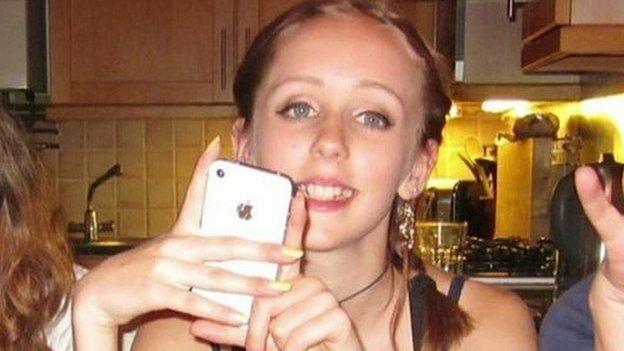
More than 1,000 calls have been made to Scotland Yard's incident room about Alice's disappearance
The investigation has so far seen the Met review 1,251 documents and speak to 1,067 people. More than 1,000 calls have been made to the incident room.
Mr Zalkalns' former girlfriend in Latvia, with whom he has two children, has said she is worried about the safety of both him and Alice, but is convinced he has done nothing wrong.
At the time he went missing he was living with a girlfriend and their young son in Ealing.
Detectives have said the suspect was also arrested on suspicion of indecently assaulting a 14-year-old girl in 2009, but no further action was taken.
A reward of up to £20,000 is being offered for anyone who has information that leads detectives to find Alice.
- Published23 September 2014
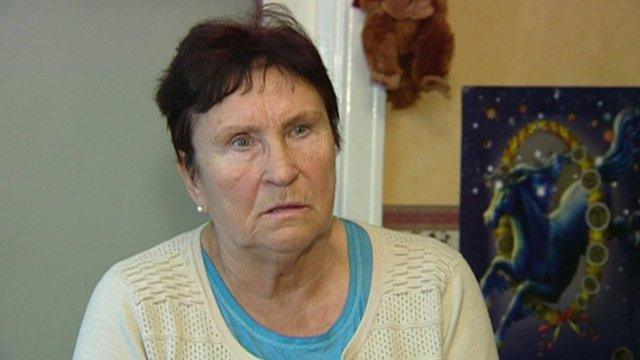
- Published22 September 2014
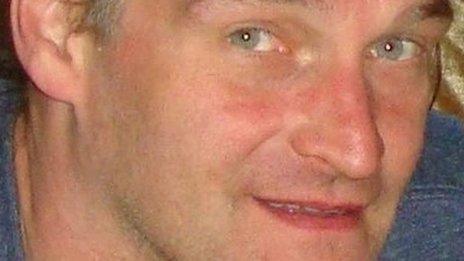
- Published21 September 2014

- Published20 September 2014

- Published19 September 2014

- Published18 September 2014

- Published18 September 2014
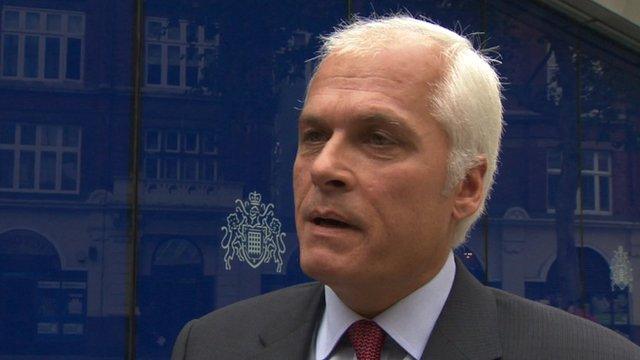
- Published18 September 2014
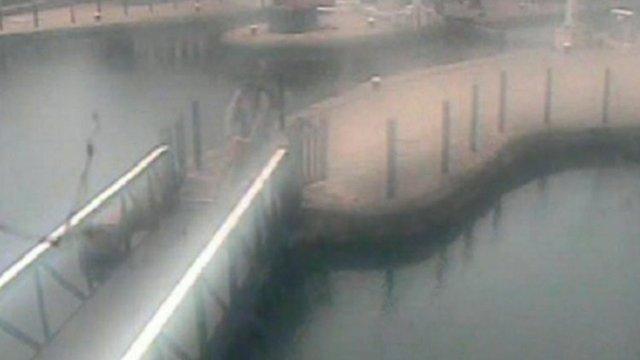
- Published11 September 2014
